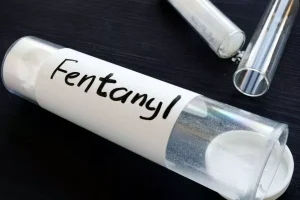
Alcohol intolerance happens when your body reacts in an unpleasant way to alcohol, but the process doesn’t involve your immune system. You may develop many symptoms, but you won’t have an anaphylactic reaction. In rare instances, an unpleasant reaction to alcohol can be a sign of a serious underlying health problem that what causes alcohol intolerance requires diagnosis and treatment. Some people may experience allergy-like tolerance changes, which can make them more sensitive to alcohol over time. This can happen even if they have previously been able to tolerate alcohol without any issues. Sometimes people have a nightcap to help them fall asleep, Bogunovic says.
Alcohol Allergies and Alcohol Intolerance
People may be unable to drink alcohol without feeling sick as a result of a hangover, lack of sleep or food, or alcohol intolerance. An alcohol intolerance occurs when someone’s body lacks the enzymes to suitably digest alcohol. As a result, a person may experience facial flushing and skin and digestive issues. We publish material that is researched, cited, edited and reviewed by licensed medical professionals. The information we provide is not intended to be a substitute for professional medical advice, diagnosis or treatment.
What is the difference between alcohol allergy and intolerance?
- Your body may also start to reject alcohol later in life because as you age and your body changes, the way you respond to alcohol can also change.
- If you and alcohol don’t mix well, consider whether you’ve experienced the following alcohol intolerance symptoms.
- As a result, a person may experience facial flushing and skin and digestive issues.
- Alcohol intolerance can cause immediate, unpleasant reactions after you drink alcohol.
- People often confuse alcohol intolerance and alcohol allergy, but they aren’t the same condition.
Some alcoholic beverages, particularly those high in histamine like red wine, are more likely to trigger these symptoms. In severe reactions or if symptoms persist, seeking medical attention is crucial. For individuals with alcohol intolerance, https://ecosoberhouse.com/article/6-ways-to-take-a-break-from-drinking-alcohol/ the primary method of prevention is to avoid alcohol consumption altogether. It is important to note that while genetics play a significant role, environmental factors and individual health conditions can also contribute to alcohol intolerance.
Mixing Alcohol With Medications: Why It’s Dangerous

People with the ALDH2 deficiency are at higher risk for certain types of cancer, including liver cancer.9 Because alcohol is a carcinogen, drinking already increases cancer risk. However, allergies to certain ingredients in alcohol can sometimes resemble alcohol intolerance. These ingredients may include gluten, grain, chemicals, and preservatives.3 If you experience symptoms no matter what type of alcohol you drink, it’s more likely that you have alcohol intolerance. Being intolerant to alcohol is different from being allergic to alcohol, and it’s not life-threatening. However, it’s important to know whether you have alcohol intolerance because it can put you at greater risk for alcohol-related health conditions. Alcohol intolerance is a common condition that affects many people worldwide.
Recognizing Immediate Symptoms of Alcohol Intolerance
Elsewhere on BBC Food


How to Distinguish Between Alcohol Intolerance and an Alcohol Allergy?
- People who have a true alcohol allergy should avoid drinking alcohol entirely.
- This is caused by inherited (genetic) traits usually found in Asians.
- Chronic symptoms and conditions may develop over time, especially in those who continue to consume alcohol despite intolerance.
